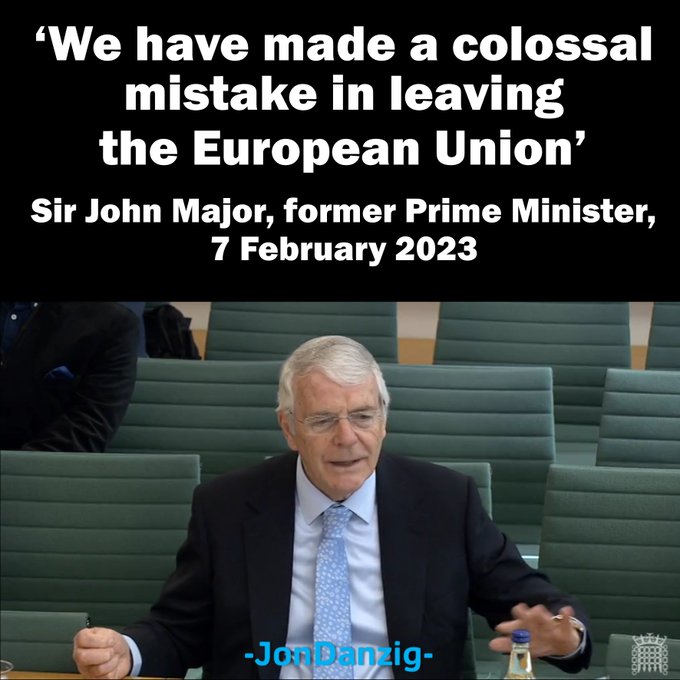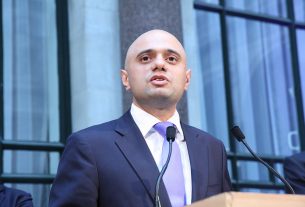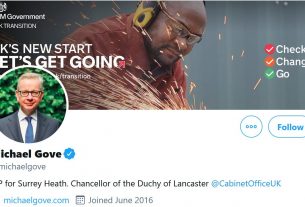The authors of the recently published Durham report have urged the Prime Minister to concede that Brexit is “the main factor” responsible for the increasing number of small boats crossing the channel. The new study cites Johnson’s Brexit deal as the cause, saying that the lack of a returns agreement with the EU has resulted in “skyrocketing” numbers.
While in the EU, Britain could send migrants back under the Dublin Convention, no mechanism now exists. Durham report author Professor Thom Brooks told The Independent:
“The government used to have a deal on returning migrants, but it ended with Brexit, and no alternative was agreed.
“This made it far more difficult to return any new arrivals, and numbers have skyrocketed after this deal stopped.”
The study found that no small boats crossed the channel before 2018. Moreover, it points out that the Conservative government was warned as early as 2016 that numbers would escalate in the absence of a new returns agreement. Professors Brooks urged the government to negotiate a new deal with France and the EU as a whole:
“The prime minister must acknowledge the main factor for creating the small boats problem so he can fix it. Rishi Sunak’s difficulty is it would mean recognising key mistakes that his government made and were warned about but ignored.”
While Rishi Sunak and Suella Braverman are to reveal new rules to remove the right to claim asylum and the right to appeal from migrants arriving via illegal routes, the report author has cast doubt over the effectiveness of such measures. Instead, the report suggests closer collaboration with the National Crime Agency in the fight against people traffickers.
The Durham report further blames staff shortages rather than a rise in migrant numbers for the current backlog. And as for the Rwanda scheme, the authors seriously doubt its efficiency and workability.
Supreme Court dismisses Brexiteer and Unionist NI protocol challenge
On Wednesday, the British Supreme Court dismissed a legal challenge against the Northern Ireland Protocol. A number of Unionist politicians had appealed the same decision by the High Court and the Court of Appeal in Belfast. They had argued that the NI protocol was contrary to the Good Friday Agreement and the 1800 British-Irish Act of Union.
The Supreme Court dismissed the appeal by Tim Allister, TUV leader, and others on all grounds. After the dismissal, Lord Stephens said:
“A clear answer has been expressly provided by parliament in relation to any conflict between the protocol and the rights in the trade limb of article VI (of the Acts of Union 1800).”
After the announcement of the verdict, former MEP and Brexiteer Ben Habib told BBC News:
“They may have ruled that it has legally done so, but effectively the United Kingdom of Britain and Northern Ireland is broken, the Good Friday Agreement is broken, and that is complete constitutional clarity for us.”
In other post-Brexit news
On Tuesday, senior tory MPs warned the PM that leaving the European Convention of Human Rights (ECHR) plunge the UK into “inglorious company” with the likes of Russia.
David Simmons MP told The Independent that he was “profoundly concerned” at the possibility of “joining Russia and Belarus as the only European countries that aren’t participants in the convention”.
According to the Sunday Times, Rishi Sunak is leaving the option of a withdrawal on the table. A source close to the PM said:
“The PM has been clear he wants to introduce legislation that meets our international obligations. This bill will go as far as possible within international law. We are pushing the boundaries of what is legally possible while staying within the ECHR.
“But if this legislation gets onto the statute book and is found to be lawful by our domestic courts, but it is still being held up in Strasbourg, then we know the problem is not our legislation or our courts.”




